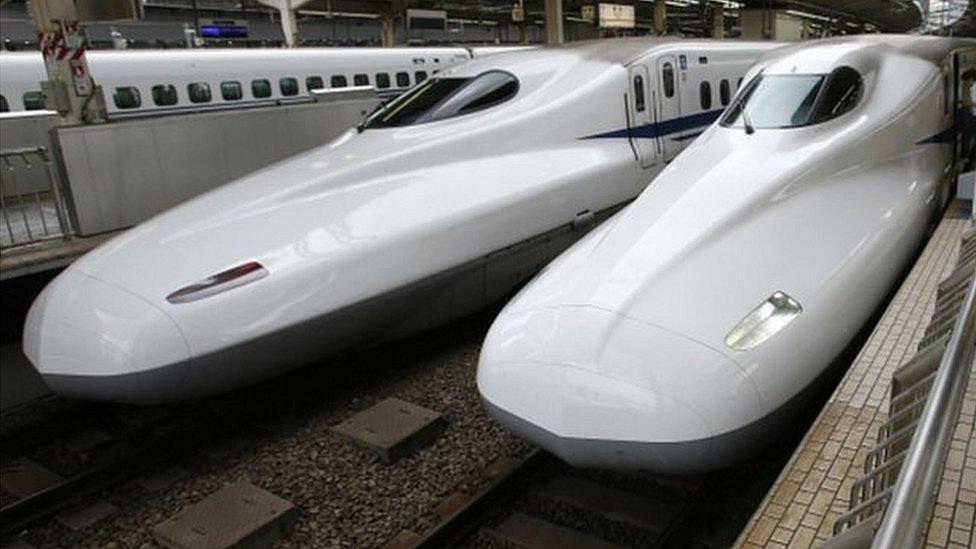India election 2019: Is India's bullet train on time?
- Published
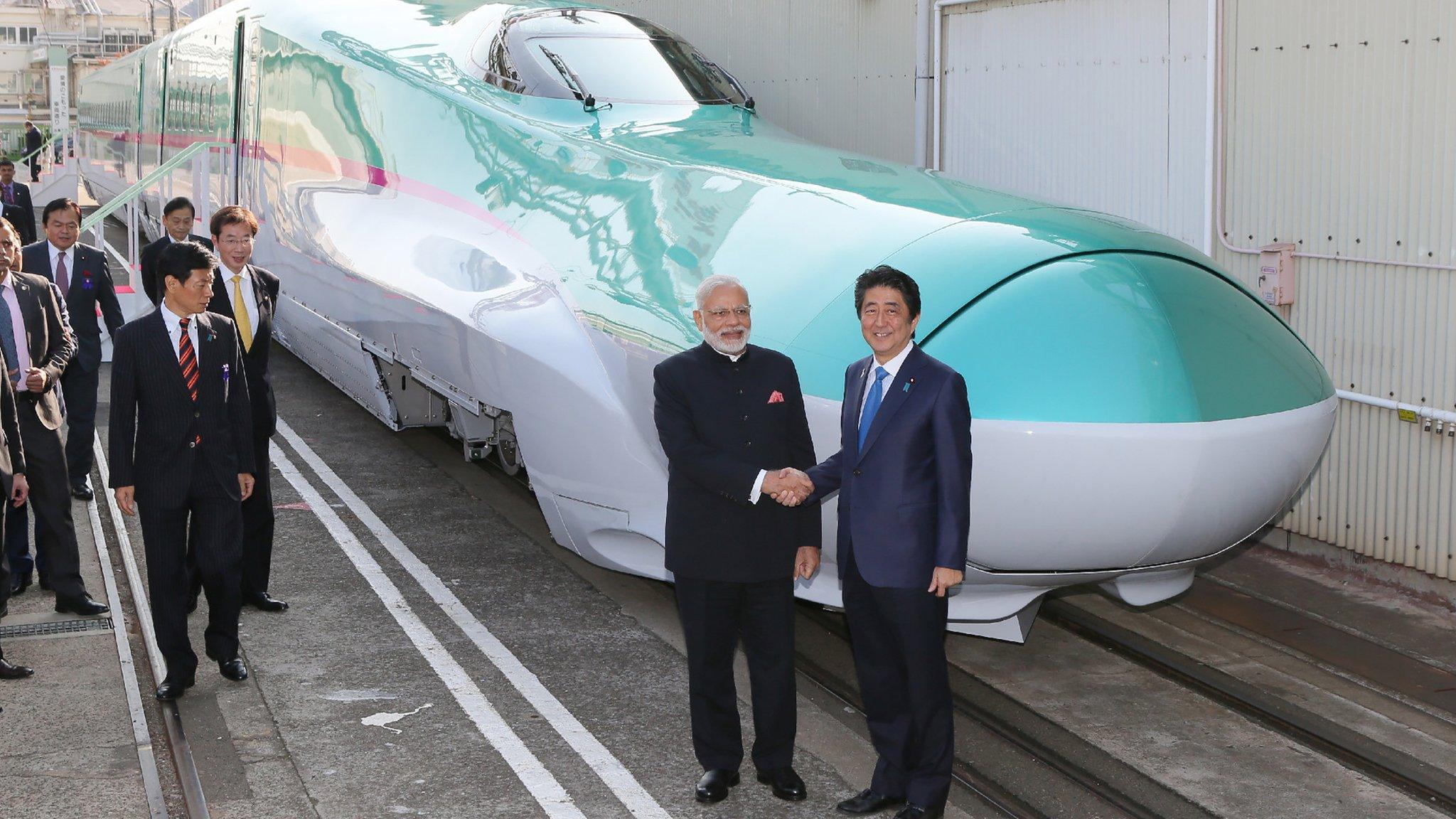
India has undertaken an ambitious project for a bullet train to run between two of the country's major cities.
A deal was signed in 2015 with Japan, which is helping to finance its construction.
The project is part of the government's commitment to revitalise the country's creaking 165-year-old rail network.
In the run-up to the Indian election, which gets under way on 11 April, BBC Reality Check is examining claims and pledges made by the main political parties.

Claim: India will have a bullet train service running by August 2022. This will run down the west coast, connecting the cities of Mumbai and Ahmedabad.
Verdict: Passengers may get to experience a modern high-speed train on just a small section of line by 2022. It looks unlikely the promised bullet train will be fully operational by then or even by the following year.

The bullet train project was officially launched at a ceremony in September 2017 attended by the Japanese Prime Minister, Shinzo Abe.
That year, the Indian Ministry of Railways said "all-out efforts" would be made to complete the high speed rail project by 15 August 2022.
However, officials involved with the plan now estimate that only a small part of the route will be completed by this time, with the rest finished in 2023, external.
The Congress opposition leader, Rahul Gandhi, has described it as a "magic train" that will never be completed.
Why is it needed?
India's vast rail network offers a cheap and vital transport service for 22 million people a day on about 9,000 trains.
But travellers have long complained of poor services and a lack of investment in modernisation.
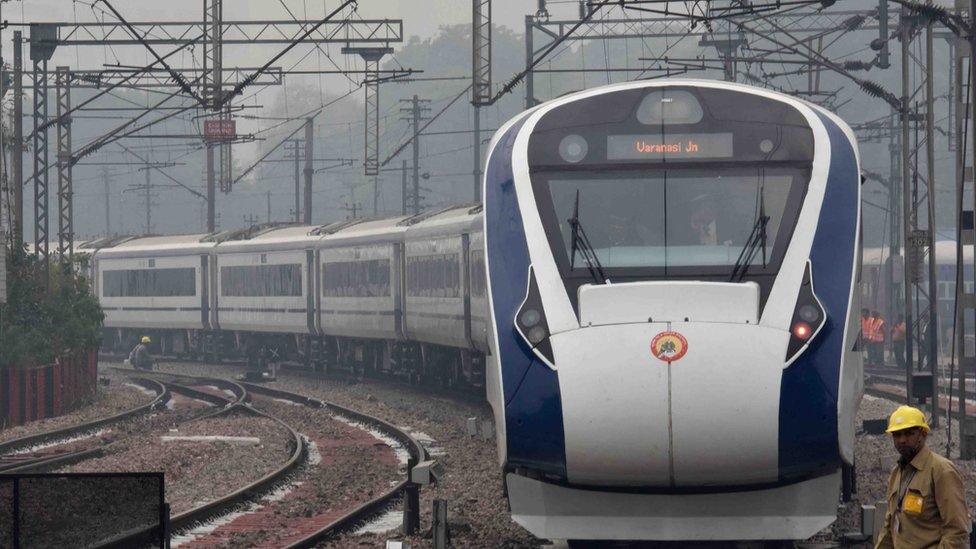
India's Vande Bharat train - the fastest currently in service
Currently, India's fastest train is the Vande Bharat Express, which has reached 180km/h (110mph) during trials.
The Japanese bullet train is almost twice as fast, capable of speeds up to 320km/h (200mph).
Once completed, the $15bn (£11bn) high-speed rail route will connect India's major business and financial hub of Mumbai with important business centres in Gujarat state such as Surat and Ahmedabad.
The 500km-long journey now takes about eight hours.
That's expected to drop to well under three hours, with the fastest journey times estimated at just two hours and seven minutes.
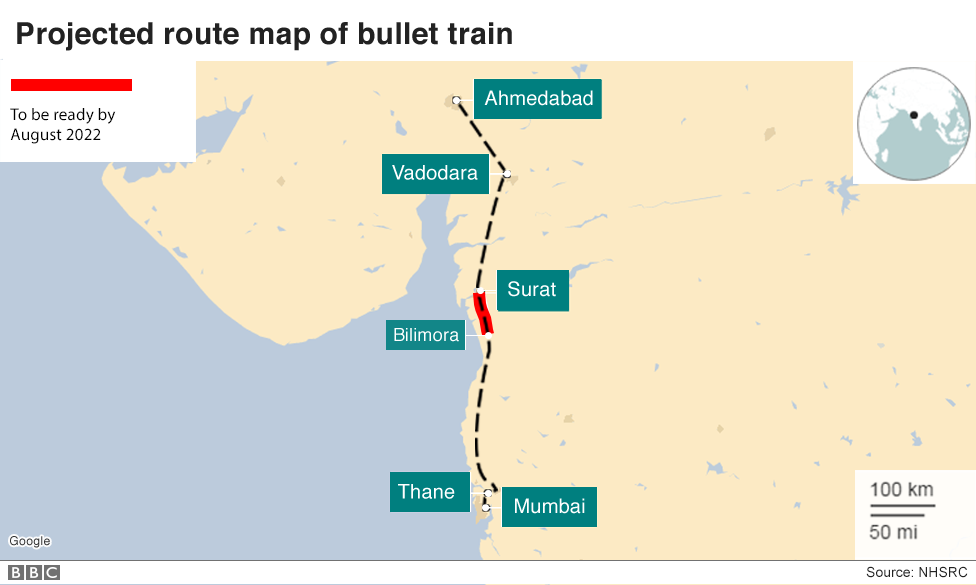
When will it be finished?
Some experts think even the current deadline given by officials, of December 2023, is overly optimistic.
"I am not sure - considering how slow things are moving," Debolina Kundu, an associate professor at the National Institute of Urban Affairs, told BBC News.
"And there are bureaucratic hurdles."

Read more from Reality Check

The main obstacle is land acquisition.
The train project needs to acquire more than 1,400 hectares (14 sq km) of land, most of it privately owned.
The National High Speed Rail Corporation had been aiming to complete this process by the end of last year but has recently said it will continue until mid-2019.
In February, it told BBC News there were now agreements with more than 1,000 landowners - out of an estimated total of 6,000.
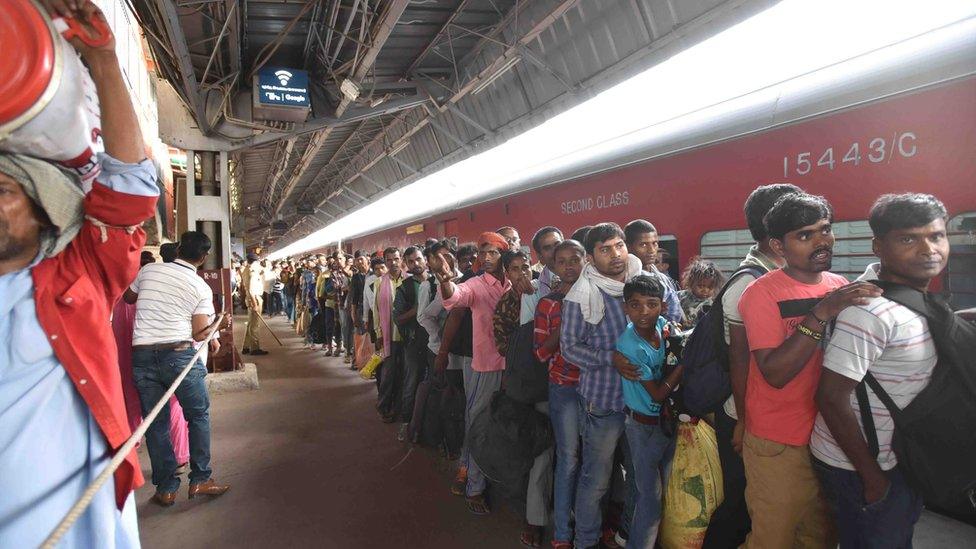
One barrier to the land sales has been dissatisfaction with the amount of compensation being offered to the owners.
There have been protests in some areas over plans for land acquisition - and multiple petitions filed in the courts.
And in India, court cases challenging land acquisition can drag on for years.
But those running the project say they are paying compensation of 25% above the legal requirement.
Another potential barrier is the need for wildlife and other environmental clearances, as the train will pass through three wildlife areas and coastal regions.
It will also cross areas classified as forest - and this land can be acquired only once environmental impact studies have been completed and reforestation plans drawn up.



- Published16 February 2019
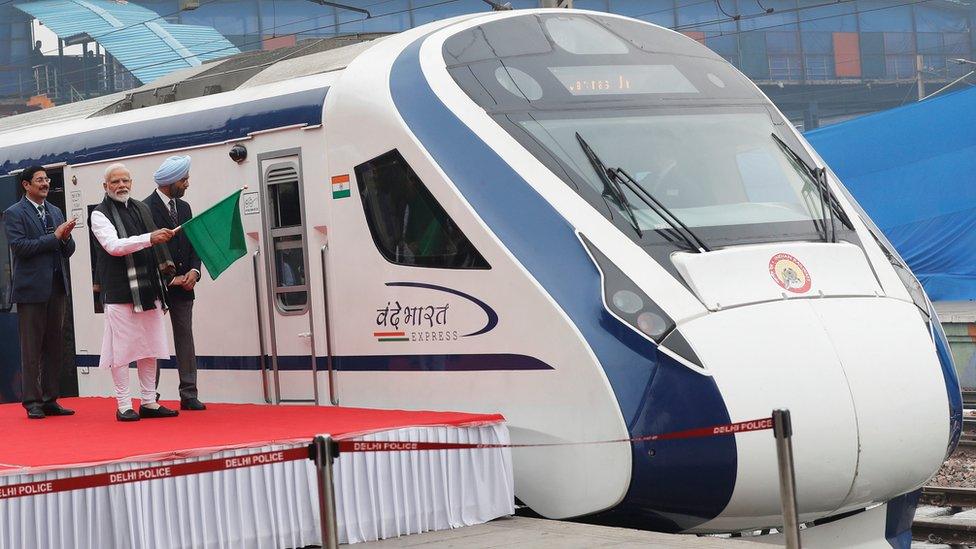
- Published17 December 2015
